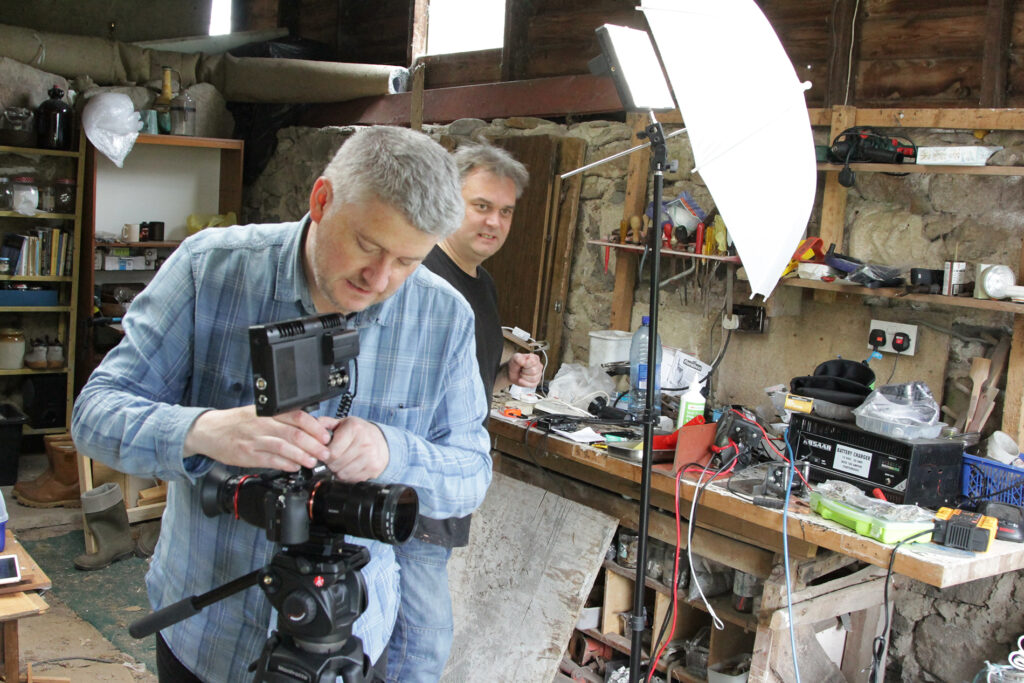
Introduce yourself?
I am Michael Clark, owner of Hats on Sticks Pictures. I’m a producer with over 20 years experience in the industry. I am also a qualified designer, digital animator, cinematographer, occasional actor and stuntperson.
What made you into filmmaking at first?
I had a Super 8 cine camera when I was a kid and used to make movies with Star Wars figures and blow them up. Basically, every movie I made for the next 30 years had something blowing up, or me going on fire: or both.
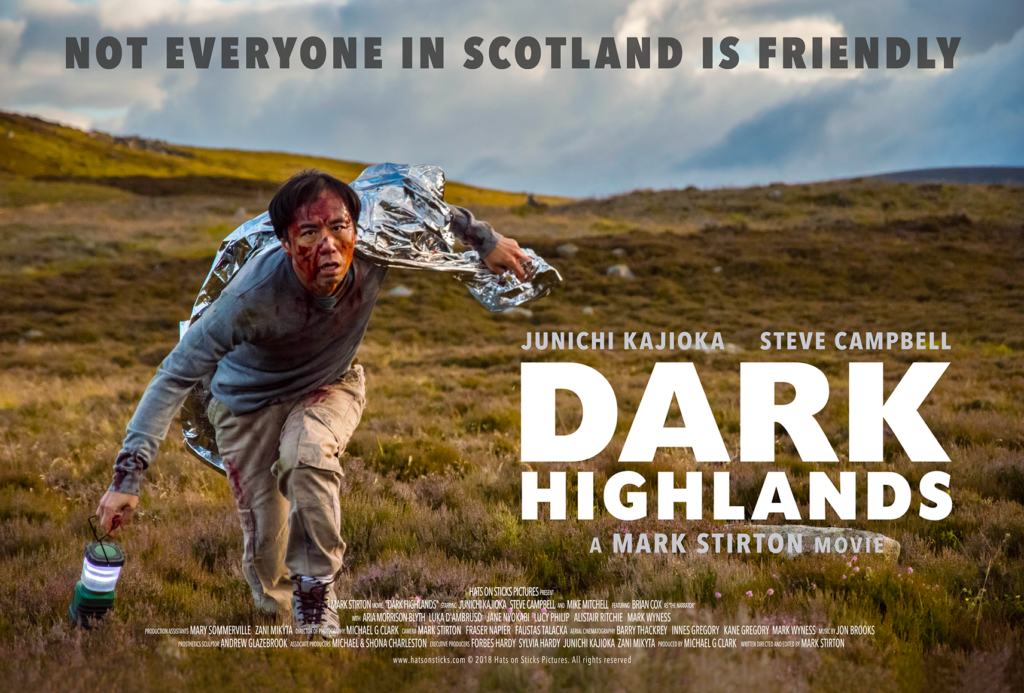
Tell us about your latest film, Dark Highlands, what was the most difficult scene to film?
Dark Highlands, written and directed by Mark Stirton, was filmed over 2 summers in Scotland. Roughly 6 weeks in total as there was no Summer in the first year of shooting. Filming in the Highlands is the hard part, so that’s about 80% of the scenes. Minus degrees centigrade in July, rain, wind and biting insects called ‘midgies,’ that swarm in thousands and leave marks like bullet holes. If it wasn’t for the professionalism of the cast and crew, I would have given up and lived in a hut.
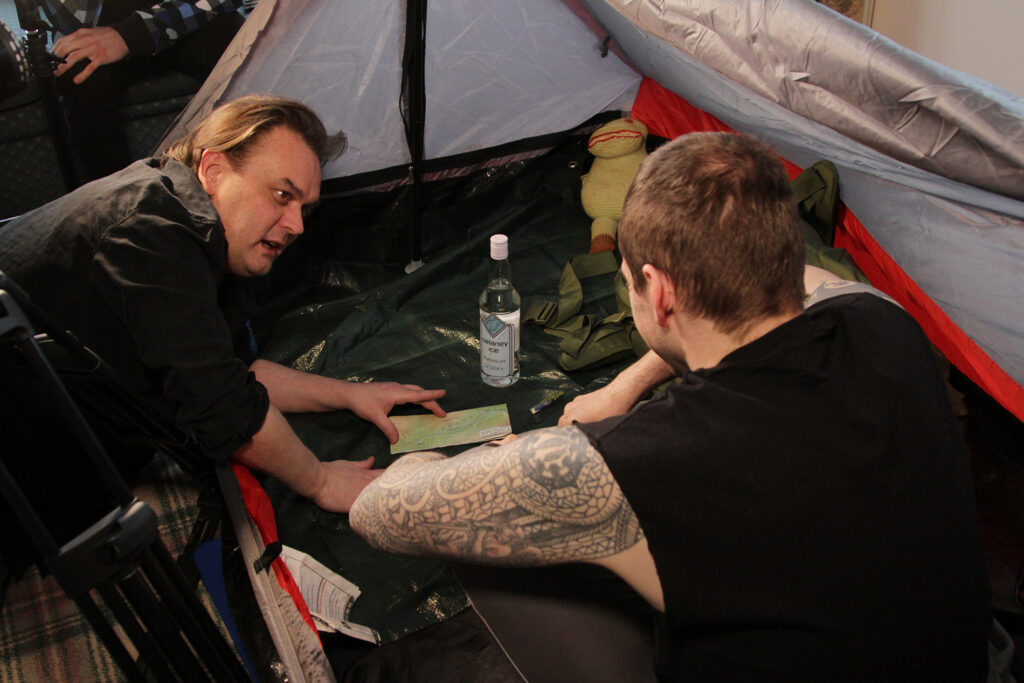
Any funny accidents or situations happened on set?
Because of limited availability of sun, during the Summer, we filmed a lot of interior tent scenes in our lodge in the highlands. So, nearly every cold, wet, spooky scene was actually shot in a nice warm living room with a three-quarter tent opened up to film the interior. The exception was a scene where a tent is filmed with bugs and maggots, and I had to stand in for an actor for closeups of beetles crawling over their face and hands. Film making is never glamourous.
Was it difficult to find a crew and cast? Tell us something about the process.
This was a tiny cast and crew for a feature, roughly 12 in total as the director and I did 30 jobs each. We thought the hardest person to find would be a Japanese actor in the UK, willing to work in Scotland. The director/production manager, Mark Stirton found our actor (Junichi Kajioka) by looking online and Junichi was the first actor in the list – he said yes.
Finding experienced assistants was the hard part, as there is very little work in our area for film crews. It took a few weeks of advertising locally and facebook/twitter posts, right up to the start of the production date to find people with any experience. The common thing when filming low or no budget movies is to use your friends to fill out the crew, this sometimes works, but friends also have lives and commitments and you do not want them to just vanish for a few days when you really need them. Hire people who want to be there and can commit to 18-hour days in the pissing rain with constant stress – as friends can quickly become ex-friends in that environment.
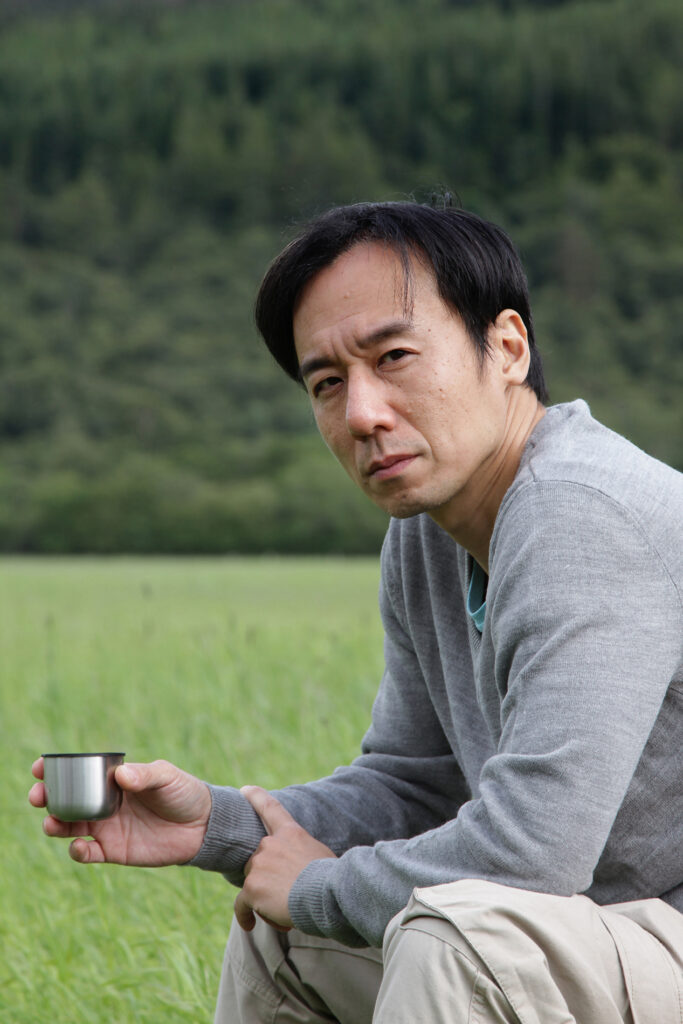
Were there some new people for you, that you haven’t worked with before? Who surprised you most positively and why? You may name more than one if you like to.
There were a few new people in our cast and crew. One of the assistants, Barry Thackrey, was hired for his sound experience and quickly became invaluable in every field. He also shared my love of blowing up things, so he got to play the Jogger in the movie and was wired up with lots of air cannon squibs. People that have multiple disciplines are very handy. It was also our first time working with the lead actor, Junichi Kajioka. He was a real professional with a lot of movie experience and really put the hours in, as long as we kept him topped up with Japanese game shows he was great to work with.
Getting funding for independent filmmaking can be tough sometimes. How did you get funding?
Funding for an independent feature is a nightmare. The main problem with receiving funding through funding bodies or outside producers is loss of control. Unless you have a great reputation and can attract funding with few strings, your film will be a series of compromises. It’s a thing most film makers are aware of and have to learn to work with. The obvious first step is to try the government film funding bodies, which we did. They weren’t interested, so we moved onto film partners, offers of co-producership and investment returns. Some of the film was funded that way, a promised percentage return from film profits, but most of the money for this production I had to put up myself. It’s a big risk, but this way we had full control of the production and could work to our own schedule.
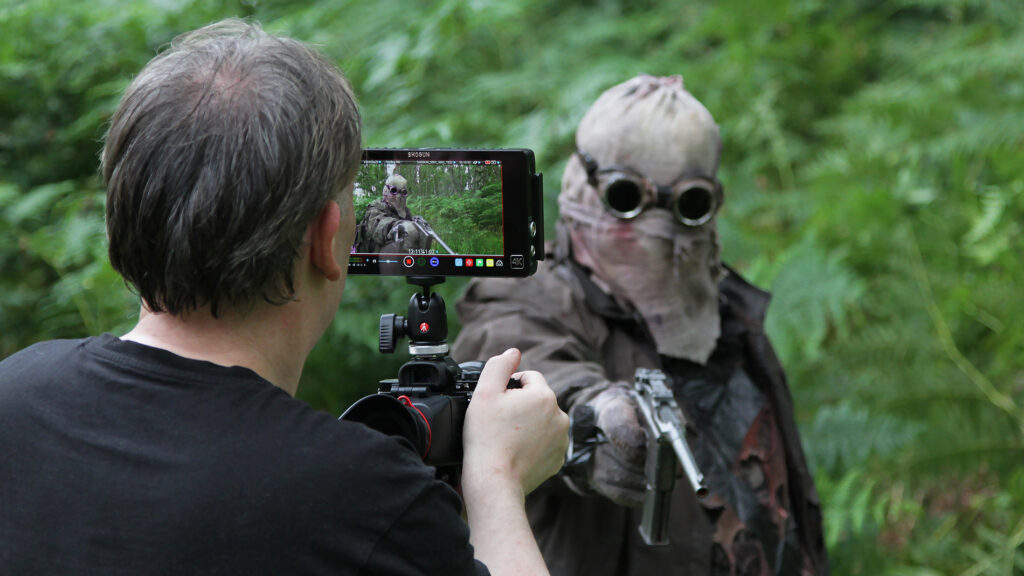
Do you have any tips for new filmmakers on how to get funding?
Put an attractive package together, use every tool you can to attract funding from investors. Online pitch decks are great for getting your message across to people, so throw everything into them and keep trying. But be realistic in what you think your budget will be, it is always twice what you think you need: even for a no budget movie.
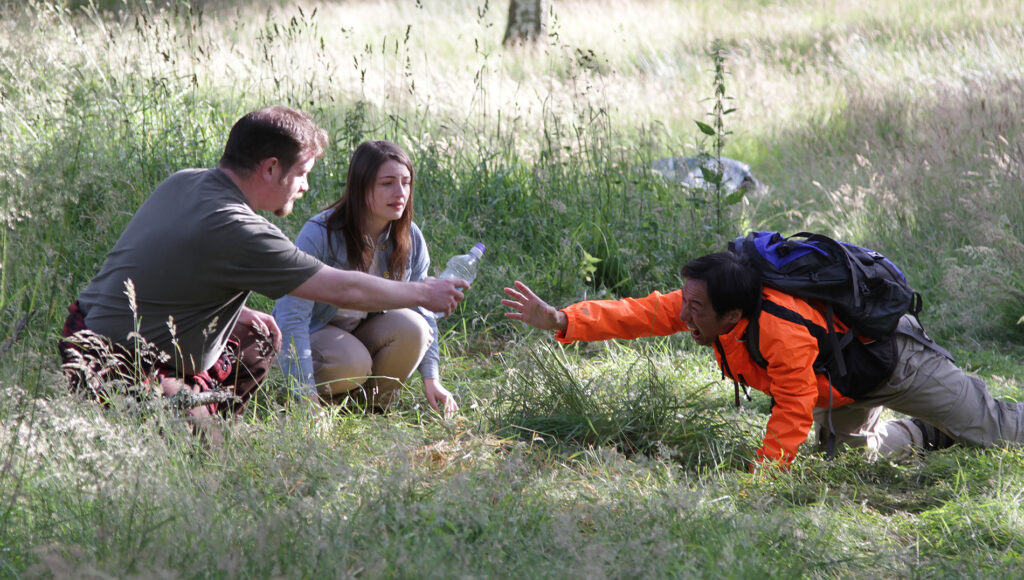
Has it been difficult to find distribution for your film? Where have you got it distributed so far?
We are lucky enough to have an agent in the US from a previous production, so were able to secure distribution in the US quickly after release. But trying to break into UK or European distribution is hard without representation. For a low budget movie like ours it hasn’t been easy, so we were really pleased with Planet on Fire’s streaming offer.
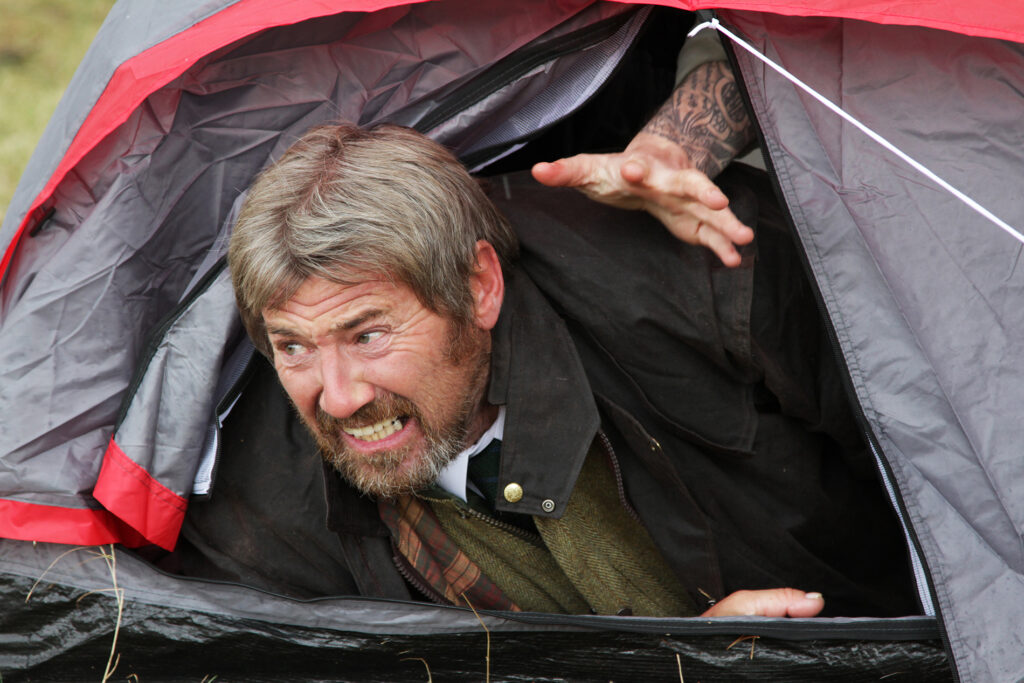
Any tips for new filmmakers on what to avoid on set and what to concentrate on set?
- The best advice for any new film maker is to study the boring, but frighteningly necessary, world of contracts, production diaries, insurance and releases. If you are starting out and don’t have a producer or legal team supporting you it is easy to gloss over the legal side and run off and film something. You may be an amazing director, but without the paperwork you won’t get distribution and leave yourself open to legal troubles.
The best on-set advice: don’t be a dick. You don’t have to be everyone’s friend – but stay professional and be fair.
How do you want to improve yourself to be a better filmmaker?
Dark Highlands was the first movie I worked on as a cinematographer. It’s a role I would like to work in again, I’ve always been more interested in the artistic side of the process and it’s a fascinating one.
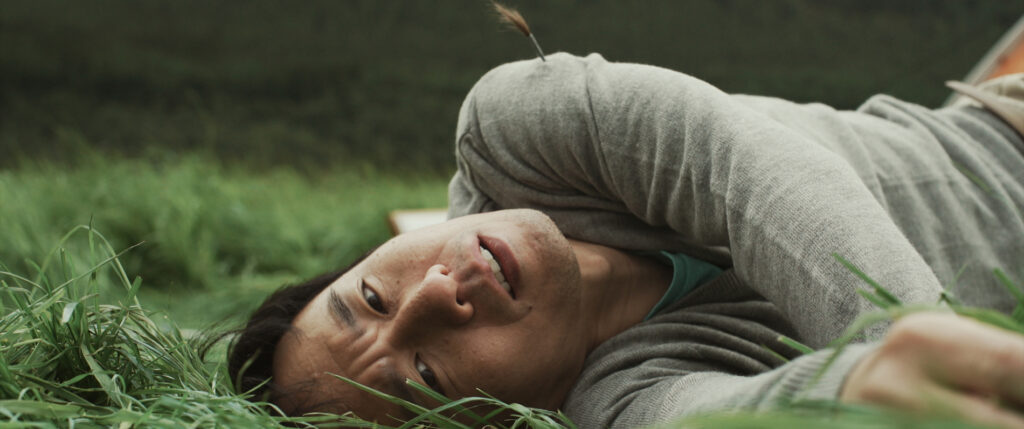
Who are great filmmakers in your opinion?
Great filmmakers, in my opinion, are ones that have stood the test of time but I think Denis Villeneuve will be considered one someday. My all-time favorites are Michael Powell, David Lynch, Akira Kurosawa, Ingmar Bergman and Wim Wenders
Do you have the next film at work? Tell us about it.
Nothing at the moment. I’m having a rest after decades of craziness.
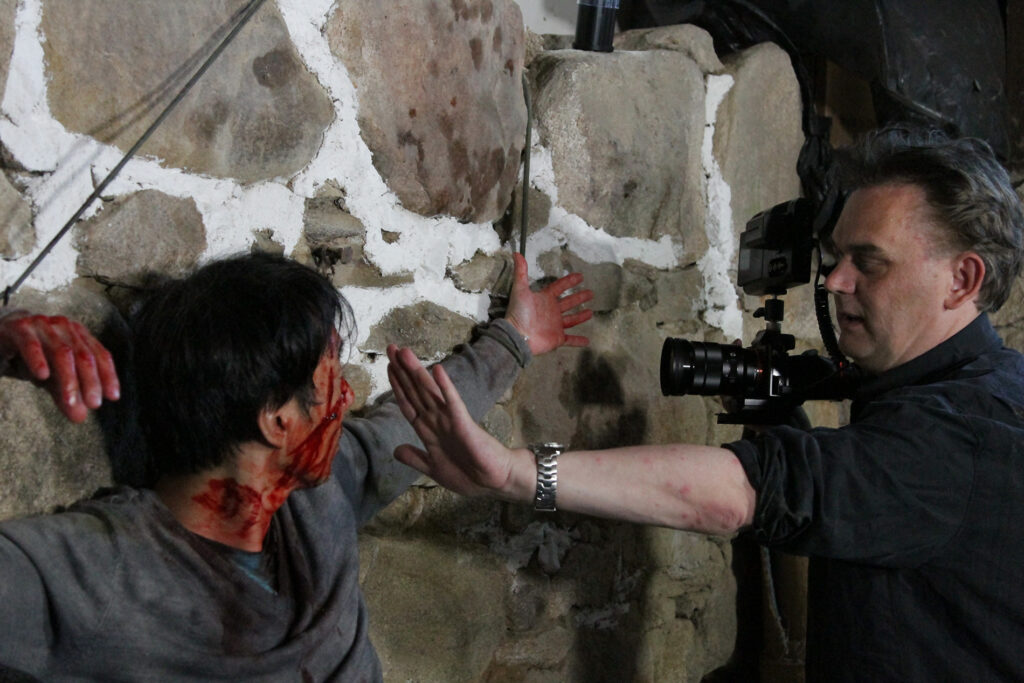
What is the biggest goal you have reached so far as a filmmaker? What goal(s) do you still want to reach in the future?
Making any movie and getting it out there is a good goal but having sold-out screenings with our previous movie “One Day Removals,” was great. Getting good feedback from a whole audience makes all the mud, cold nights and stress worthwhile.
Free speech for our readers?
If you want to make movies, make movies. Never listen to friends or random people online that say you can’t make a movie where you live as no-one else has – just do it.
Dark Highlands – trailer
Dark Highlands scene
Dark Highlands TV spot / Behind the scene
Share this content: